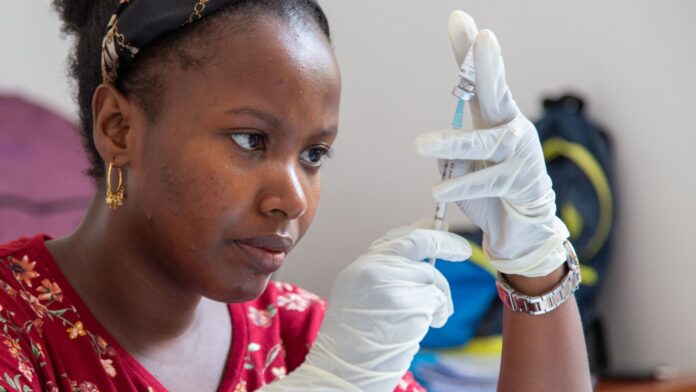The Food and Drugs Authority (FDA) has approved R21, a new malaria vaccine, from the Oxford University for use in children between five months to three years.
This makes Ghana the first country in the world to approve the vaccine, which has been described as a “world-changer” by the scientists who developed it.
The FDA’s approval of the vaccine comes even before the World Health Organization’s (WHO) assessment of the safety and effectiveness of the vaccine.
This is the first time a regulatory authority in Africa has assessed and approved a vaccine ahead of the WHO.
The WHO is also considering approving the vaccine, while other African countries are also studying it.
Medical experts expect R21 to make a major impact on malaria mortality in children in the coming years, and in the long term contribute to the overall final goal of malaria eradication and elimination.
The Serum Institute of India is preparing to produce between 100-200 million doses of the R21 vaccine per year, with a vaccine factory being established in Accra.
Each dose of R21 is expected to cost a couple of dollars.
Malaria kills about 620,000 people each year, most of them young children.
It has been a massive, century-long, scientific undertaking to develop a vaccine that protects the body from the malaria parasite.
Trial data from preliminary studies in Burkina Faso showed the R21 vaccine was up to 80 per cent effective when given as three initial doses, and a booster, a year later.
GNA





